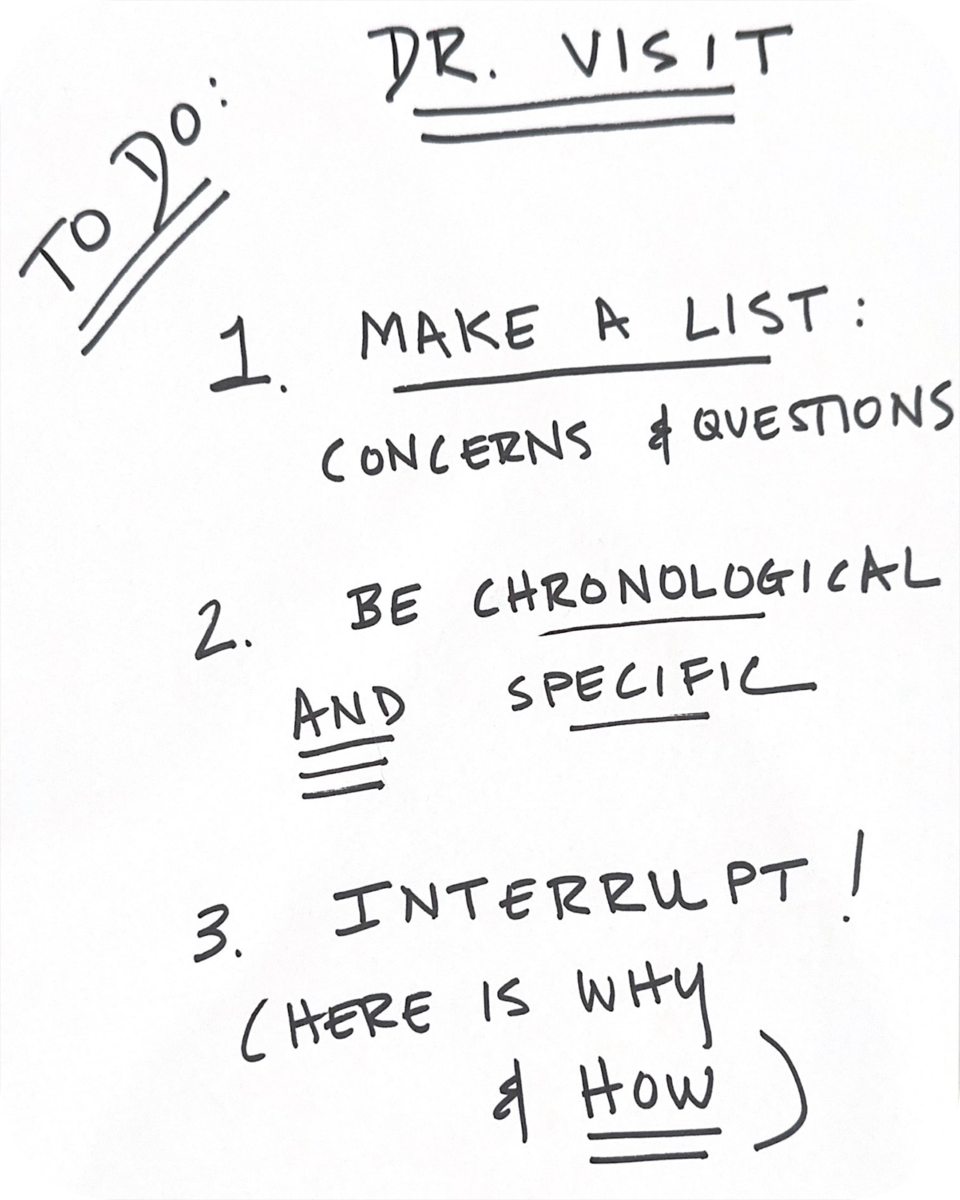
A few weeks ago, I was asked to be on “The Physician’s Guide to Doctoring” podcast.
The host’s intention was for me to help doctors communicate more effectively with their patients.
To prepare for the interview, I spoke with multiple doctors. (I knew my—our—side of the story… what was theirs?)
Below, my top 3 takeaways for how to make our communication with our doctor(s) more effective:
- Bring a list of symptoms/questions/concerns:
First—in addition to having the receptionist who books the appointment remind me to bring my insurance and ID—I mentioned it would be helpful to have them ask me to bring in a list of my symptoms/questions/concerns.
Until that’s the norm, arriving with this in hand will help you set an agenda for the time you have together.
- If possible, make that list both chronological and specific:
When we tell the story of how we have been feeling/what occurred, we often begin in the middle—if not the end. Taking the time to think through when you started feeling the way you did, and the progression of your symptoms, is enormously helpful to your doctor—and to you!
Similarly, it’s important to be specific. So, instead of, “I have pain in my knee,” you might say, “I have pain in the left side of my knee when I engage in X activities.” It’s also useful to describe the quality of the pain: is it dull? Sharp? Intermittent? Continuous? Be specific. Write it down.
- It’s OK to interrupt. When you do, the magic phrase is, “I’m going to interrupt you because…”
Many of us see doctors as authority figures and so, we hesitate to speak up—even when things seem to be going sideways. In these moments, your magic phrase is, “I’m going to interrupt you,” (Please note, it’s not, “May I interrupt you?” It’s happening…)
Then, give them the ‘because’ why you are interrupting. For example, “Because I forgot to mention X/because you misunderstood what I meant when I said Y” etc.
What else did I learn?
Doctors are happy to have you take notes during the meeting and/or bring a friend.
Why? Because sometimes what we learn is overwhelming. Slowing things down by taking notes and/or having another set of ears is helpful to everyone.
Finally, what I heard was that doctors are just as frustrated as patients with the time constraints and the forms and the billing and the mayhem. They got into their profession because they were interested in healing— and now they are facing down Form X sub chapter B… multiple times a day.
Doing what we can to help them help us benefits everyone.
For more tips, look at “How to Get What You Need From Your Doctor”
